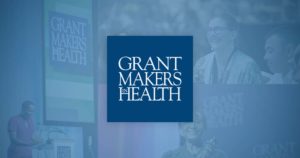Georgia Health Initiative: September 2025
A new report, “Progress Towards Vitality: A 10-Year Retrospective Analysis of Systems Focused Efforts to Improve Maternal Health in Georgia,” analyzes a subset of recommendations put forward by the Georgia Maternal Mortality Review Committee (MMRC) and the Georgia House Study Committee on Maternal Mortality to improve maternal mental health in the state.
Healthcare Georgia Foundation Publication: CATALYST
Healthcare Georgia Foundation introduced the Summer 2018 edition of CATALYST, its new, quarterly interactive online magazine.
Appalachian Regional Commission Report: September 2018
Three new resources released by the Appalachian Regional Commission (ARC), the Robert Wood Johnson Foundation (RWJF), and the Foundation for a Healthy Kentucky offer a fresh approach to understanding health in Appalachia by focusing on community strengths and identifying local factors supporting a Culture of Health.
Episcopal Health Foundation Report: September 2018
More than 1 million Texans have activated their Affordable Care Act (ACA) health insurance in 2018 – a 5 percent increase from 2017. That’s just one of the findings of an Episcopal Health Foundation (EHF) analysis of new ACA health insurance enrollment data released by the Centers for Medicare & Medicaid Services (CMS).
Grantmakers In Health Announces Call for Nominations for Andy Hyman Award for Advocacy and Terrance Keenan Leadership Award in Health Philanthropy
Grantmakers In Health is pleased to announce a call for nominations for both its Andy Hyman Award for Advocacy and Terrance Keenan Leadership Award in Health Philanthropy.
Cone Health Foundation is Taking the Long View: Public Policy Advocacy
To date, Cone Health Foundation has made grant investments of $86 million, spread over 1,500 grants in four priority areas (access to care, adolescent pregnancy prevention, HIV, and mental health and substance use disorders).
Small New Hampshire Foundation Steps Up to Spark State Health Coverage Opportunities
In keeping with its mission, the HNH Foundation has a long history of supporting health insurance coverage initiatives designed to improve the health and wellness of New Hampshire’s population, with a focus on the state’s most vulnerable children.






